https://www.lifegate.it/pappaluga-farm-bioinclusivita
- |
- Pappaluga Farm tells its story in one word, “bioinclusivity”:promotes inclusion by giving work to children with cognitive disabilities who grow organic fruit and vegetables here.
- It has currently hired 15 young people thanks to the collaboration with some companies and an innovative interpretation of law 68/99.
- The organic products are sold to a starred restaurant and, soon, they will also be available for online sale on a well-known platform.
This morning in hill there are to be planted strawberries, carry the wood chips, remove the plastic sheets and replace them with those of jute;in his spare time there is someone who extracts the coffee grounds from the capsules used to make the compost.
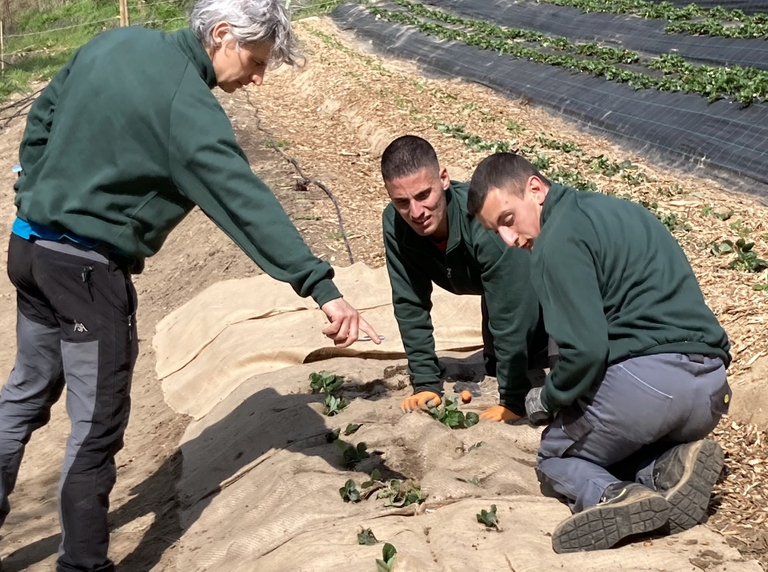
The hill is a steep forest to Gemonio, in an area that extends between Lake Varese and Lake Maggiore, left uncultivated for a long time until, a year and a half ago, Davide Macchi chose it to transform it into the "place" of Pappaluga, a social agricultural enterprise where we grow in biological And biodynamic following the principles of permaculture and where they work Boys with disability cognitive, intellectual and relational.
Pappaluga and the idea of remote working adoption of cognitively disabled children
The idea of Pappaluga was born fromDavide's personal experience, first as a sports coach in the field of Special Olympics and then how Carlo's father, a cognitively disabled boy.It is a project that aims to give a decent, real and paid work to kids with disabilities, but who does in an innovative way:“First of all, it is not just a philanthropic project, but a social entrepreneurial project that aims to self-sustain.Furthermore, it is based on remote working adoption:according to law 68/99, which concerns the inclusion and work integration of disabled people, companies with more than 15 employees must hire a person with a disability or who belongs to a protected category, but they often have difficulty fulfilling this obligation for various reasons and choose to pay an exemption contribution;we have thought of an alternative route, that is, we comply with the mandatory hiring on behalf of third parties:the third parties finance our project and thus fulfill their obligation.With the contribution of the companies, which is higher than what is foreseen by the agricultural labor contract, we also have the resources to pay the educators who are one for every four-five children".
Pappaluga's is a experimental project, unique in Italy, made with Lombardy Region:“The kids who start working here are supported for the first few days by a dedicated educator, then they complete a three-month internship and are then hired on a permanent basis.There are currently around fifteen, we would like to reach twenty, but we are looking for other terrains and we want to create an absolutely replicable model".
It's break time, under the tent we all drink tea together, Davide, his son Carlo, his older brothers Giovanni and Tommaso, always ready to lend a hand, and the other boys: Alexander, 18 years old and studied agricultural school, has just signed his first employment contract and promised to prepare the three chocolate cake to celebrate. Bouba today he is absent because the Ramadan and fasting makes work in the fields difficult; Alexander, deaf, greets us in sign language.“We start from what everyone can do and help each other.One of the boys hasn't left home for a year and now doesn't want to go on holiday with his parents because he worries about the tomatoes;another boy struggled to get dressed on his own in the morning, now he puts on his clothes independently and runs to work."
Fertilize the soil and cultivate water:Pappaluga's organic farming concept
Aromatic herbs, courgettes, spinach, tomatoes, cabbage, Breme red onions, raspberries, Mara des Bois strawberries:in Pappaluga various products are grown with attention to the varieties most suitable for hill agriculture and currently the sale is wholesale:“Among our clients is the Seta restaurant in Milan, two Michelin stars, for which we produce on request, based on chef Antonio Guida's menu, and we will soon inaugurate a collaboration with Cortilia to sell our products one day a week” .
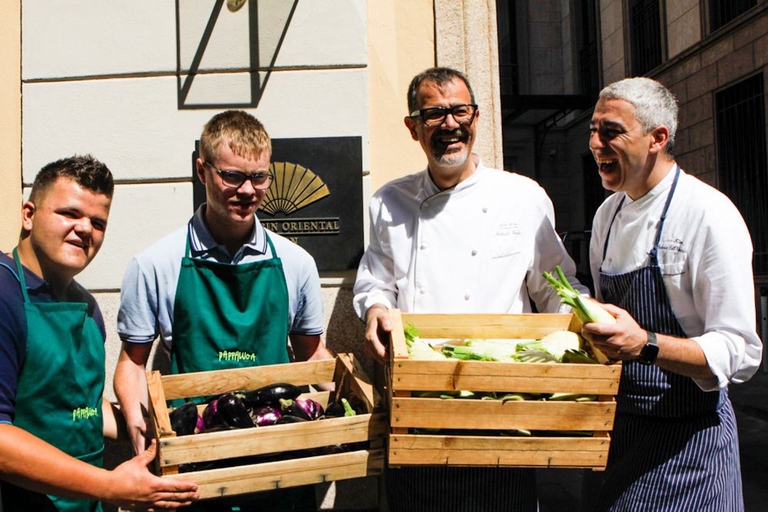
Fruits and vegetables are grown without fertilizers And pesticides:“We don't fertilize the plants, but the soil, encouraging the development of microorganisms.As fertilizer we use earthworm humus, while to combat weeds we rely on mulching techniques with wood chips that we obtain from forest branches and with jute sheets with which we are replacing plastic ones because, although they are allowed in organic farming, they release microplastics in the ground."
The idea of is also interesting “cultivate water”.“We don't just collect rainwater, we observe the path of the water and through holes dug in the ground and filled with stones we slow down its flow and encourage infiltration into the soil, so as to feed the aquifers”.Everything is explained to the children through drawings like the one illustrated Hügelkultur, a system of heap cultivation made with wood and organic waste which keeps the soil fertile for a long time - at least seven years - and which is suitable for degraded and arid land.
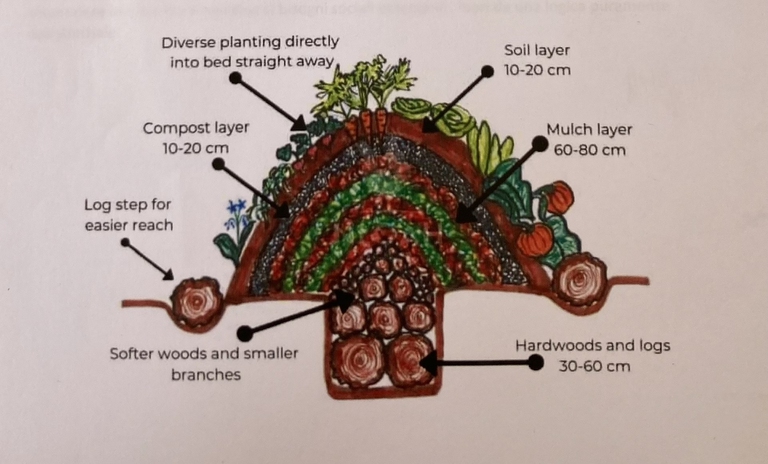
Get to know each other to overcome mistrust
Pappaluga hosts companies that want to do team building and i school kids:“There is a lot of mistrust towards this type of disability and I think that the fear of what is different can only be overcome with knowledge and understanding.Our fears and desires are the same as theirs.We also need to change the syntax with which we talk about these things, make it simpler.It doesn't take much to change a person's life."
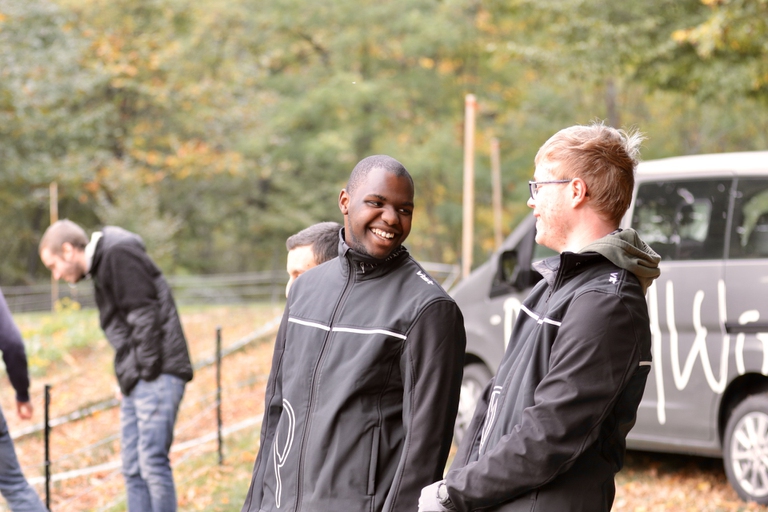
Now it's time for lunch, today's turn Stephen set the table, who is 27 years old and the largest of the group;during the week everyone has their own "schiscetta", but often we organize barbecues, cook soups to share and then play basketball or ping pong:“I see happy kids – says Davide – something funny always happens here and we laugh a lot together.Their mind goes where our rationality stops us:we're always out of place but, if you think about it, it's a beautiful place to be."
What we learned from Pappaluga about cognitive disability and inclusion
Cognitive disability manifests as a significant limitation in intellectual functioning and logical processes and is often associated with syndromes of various types;places the person in a state of extreme fragility with the risk of become invisible and be marginalized.Can be hereditary, but more often develops in contexts of family and social degradation.
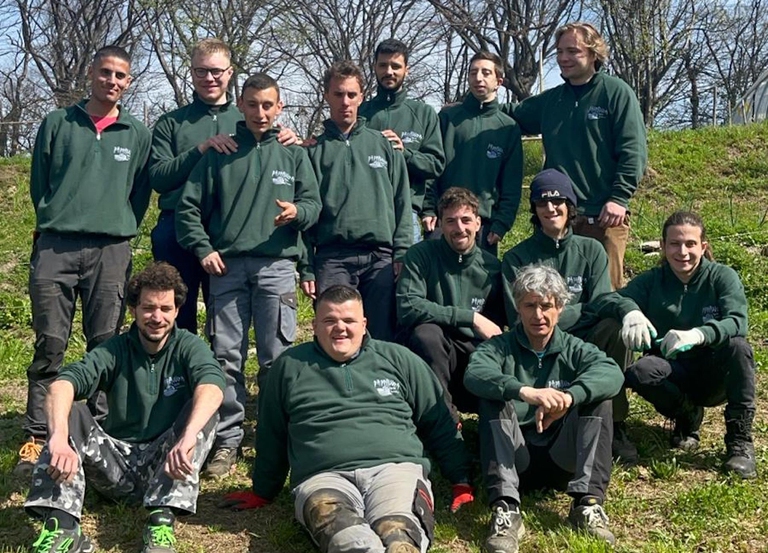
Cognitive disability is not a disease, but one condition, so you can't heal, but you can take care.Cognitively disabled people need the possibility of growing up and becoming adults, developing their autonomy, but above all to have an emotional life, a network of relationships and to be able to carry out a job, or to be part of a inclusive society, where there is no unconditional acceptance of their deficit, a resignation to this condition, but where everyone is givenopportunity to improve oneself.
